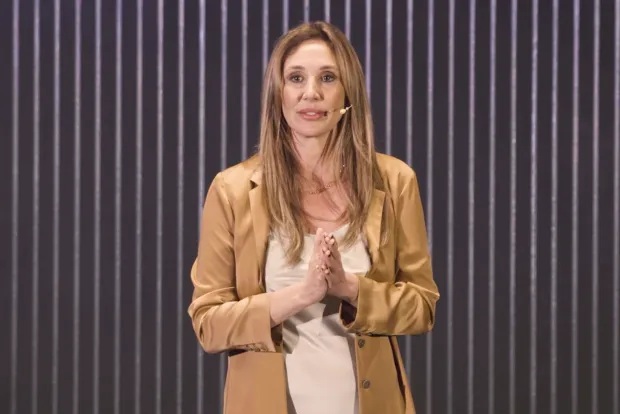Nicole Daedone: At the Crossroads of Visionary Ambition and Legal Scrutiny
From Spiritual Pilgrimage to Federal Indictment: Nicole Daedone’s Fight to Defend Orgasmic Meditation and Her Legacy

OneTaste supporters in front of EDNY Courthouse

Nicole Daedone, the enigmatic founder of OneTaste and the face of orgasmic meditation, is at the center of a storm that blends philosophical ideals, federal accusations, and cultural reckoning. Her practice, which melds mindfulness and arousal, was once celebrated as a revolutionary approach to healing trauma and fostering intimacy. But with a federal indictment for conspiracy to commit forced labor, Daedone now confronts allegations that question the very foundation of her life's work.
Her journey, from yurt retreats in Mongolia to a Brooklyn courtroom, reflects not just a personal saga but a deeper clash between groundbreaking ideas and societal discomfort with female sexuality and power.
The Fall of a Public Figure
In June 2023, Daedone was in Mongolia, engaged in a pilgrimage across sacred Buddhist sites, when news of her indictment reached her. "I was told the case was winding down," Daedone said in a recent interview. But the call she received at 2 a.m. was clear: federal agents had stormed a OneTaste retreat in California and arrested her colleague, Rachel Cherwitz. Daedone returned to the United States within days, voluntarily facing the charges. Her journey back, which included a 10-hour drive and a 36-hour flight, ended in a Brooklyn courtroom where she was handcuffed and processed.
The experience, she says, gave her a new perspective on the justice system, something she has often examined in her prison reform advocacy. "To go through the process that so many people I work with have endured—it’s ironic, maybe even karmic," she reflected.
Building a Movement
Daedone’s OneTaste was built on a provocative foundation: orgasmic meditation (OM), a practice she described as "the holy grail of attention." Combining mindfulness and arousal, OM was designed to help participants break through emotional barriers. But as OneTaste grew into a multimillion-dollar enterprise, critics accused the organization of employing cult-like practices and coercive tactics to pressure employees into grueling hours and extreme loyalty.
Prosecutors now allege that Daedone and her team blurred the lines between personal and professional, pushing employees to live communally and adhere to a strict lifestyle under implicit psychological pressure. Daedone, however, rejects these claims. "Everything we did was consent-based," she asserted. "We built this as a clean, well-lighted place for women to explore their power and potential."
A Cultural Lightning Rod
Daedone admits she miscalculated the cultural response to her work. "I didn’t realize how deeply triggering the idea of women’s autonomy and sexual power would be," she said. She attributes the backlash to societal discomfort with openly discussing female sexuality and what she calls "the war on sex."
Critics, including some former employees, say the backlash stems not from societal discomfort but from OneTaste’s alleged high-pressure tactics and blurred boundaries. The company’s communal homes, where morning meditation was mandatory and complaints were allegedly discouraged, became a focal point in the federal investigation. Prosecutors argue that these environments stripped participants of agency, while Daedone’s defense insists they were voluntary, consent-driven communities.
The Legal Battle Ahead
As her trial approaches, Daedone spends much of her time preparing. She dedicates up to ten hours a day working with legal teams while also advancing her broader mission. She has doubled down on spreading OM’s philosophy, hosting events, supporting nonprofit initiatives, and continuing her daily meditation practice.

Daedone’s supporters, who have rallied around her in court and online, describe her as a visionary unfairly targeted by a justice system ill-equipped to handle innovative ideas. Her critics, however, argue that her methods skirt ethical and legal boundaries, particularly in an era when workplace dynamics and power structures are under intense scrutiny.
Looking Forward
Daedone is optimistic about OM’s future, even if she faces prison time. "Where better to work with women than in a space where they’ve been stripped of the ability to color inside the lines?" she says, envisioning OM as a protocol to heal trauma in prison populations.
Despite the allegations and challenges, Daedone remains steadfast. She acknowledges the mistakes she made in scaling OneTaste but is unwavering in her belief that OM will reshape how trauma and connection are addressed. "This is not about me," she insists. "It’s about the movement."
As Nicole Daedone awaits her day in court, one question lingers: can a philosophy built on liberation survive accusations of control?